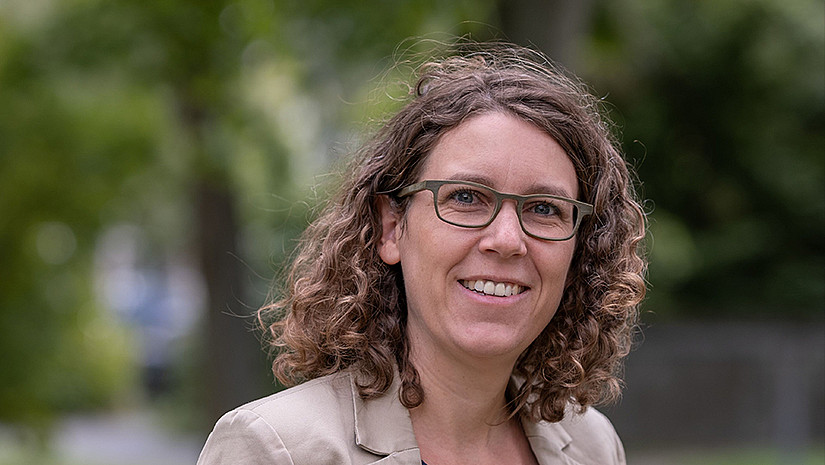ITeG Lectures 2024/2025 - ONLINE
Wednesday, 17:00
ZOOM-Link
More Information about the Presentations
Automated decision support systems are playing an important role in more and more domains. The aim of such systems is to improve the quality of decisions in different areas. The systems range from simple alarm and cueing systems to support binary decisions (e.g. baggage screening, mammography) to complex systems that support diagnostic (e.g. medicine, process control) or strategic decisions (e.g. air traffic control, military). With the development of modern AI-supported systems, the importance of such decision support will increase significantly in the future. The focus of traditional human factors research in engineering psychology in this area is often on evaluating the benefits of these systems for the quality of decisions in relation to new risks that may be associated with their use. The lecture gives a brief overview of this research, addresses “blind spots” and finally deals with the question under which conditions the interaction of humans and automation in this area can actually lead to synergy effects with regard to the quality of decisions.
Dietrich Manzey is Professor (retired) of Work, Engineering and Organizational Psychology at the TU Berlin. He received his doctorate from the University of Kiel in 1988 and habilitated in 1999 with work on space psychology at the University of Marburg. From 1987 to 2001, he worked at the German Aerospace Center (DLR) in Hamburg, where he was involved in the aptitude testing and training of pilots, air traffic controllers and astronauts. His research focuses on multitasking, human-automation interaction and aerospace psychology. In 2006, he founded the first Master's program for Human Factors in Germany. He is a Fellow of the Human Factors and Ergonomics Society, an elected member of the International Academy of Astronautics and a member of the German Psychological Society. This year, he was honored by the German Psychological Society with the award for his scientific life's work.
When making purchase decisions, consumers often feel overwhelmed and desire assistance to support their decision-making process. In traditional e-commerce, this is typically achieved through simple interactive tools such as filters and sorting mechanisms, or recommender systems, and chatbots. With the emergence of the metaverse, shopping might soon take place in a new environment—virtual reality. Beyond the consumer data we know from e-commerce platforms, virtual reality provides access to much more data, including eye-tracking, body orientation, and movements, which are essential for creating immersive 3D worlds. This abundance of real-time data necessitates AI-based assistance systems. This talk will provide an overview of various research projects that explore the possibilities, but also challenges and threats related to data privacy and trustworthy AI in this context.
Prof. Dr. Jella Pfeiffer is Professor of General Business Administration and Information Systems at the University of Stuttgart. Previously, she studied and taught at KIT and the universities of Mannheim, Mainz and Giessen as well as Harvard, HEC Lausanne and Sauder Business School in Vancouver. She is a leading expert in experimental research and eye-tracking analysis, application and regulation of AI as well as research on conversational agents. One of her current main topics is the design and evaluation of intelligent user assistance systems that help consumers make decisions not only in traditional e-commerce environments, but also in virtual shopping environments. Her work has been published in leading journals such as Information Systems Research, Journal of Management Information Systems, Journal of the Association of Information Systems and European Journal of Operational Resesarch.
The relationship between humans and machines, especially in the context of artificial intelligence (AI), is characterized by hopes, concerns and moral questions. On the one hand, advances in AI offer great hope: It promises solutions to complex problems, improved healthcare, more efficient work processes and much more. But at the same time, there are legitimate concerns about control over this technology, its potential impact on jobs and society, as well as ethical issues related to discrimination and the loss of human autonomy. The lecture will highlight and illustrate the complex tension between innovation and moral responsibility in AI research.
Kristian Kersting is co-director of the Hessian Center for Artificial Intelligence (hessian.AI) and heads the AI and Machine Learning department at TU Darmstadt. His research includes Deep Probabilistic Programming and Learning and Explainable AI. He is a Fellow of the Association for the Advancement of AI (AAAI), the European Association for AI (EurAI) and the European Lab for Learning and Intelligent Systems (ELLIS), book author (“Wie Maschinen lernen”) and winner of the “Deutscher KI-Preis 2019”. He writes a monthly AI column in Die Welt.
Oliver Hinz is Professor of Business Administration, in particular Information Systems and Information Management, at Goethe University Frankfurt. Following his studies in Business Informatics at the TU Darmstadt, he worked for several years for Dresdner Bank in the Private Banking division as a developer of business logic. He successfully completed his doctorate on the subject of interactive price mechanisms in dynamic markets at the Chair of Electronic Commerce at Goethe University Frankfurt in 2007. His dissertation was awarded the Alcatel-Lucent Foundation Dissertation Prize 2008, the Erich Gutenberg Prize for Young Scientists 2008 and the EHI Retail Institute e. V. Science Prize for Retail 2009. Oliver Hinz is also the recipient of the 2008 Schmalenbach Prize for Young Scientists.
From 2008 to 2011, he supported the E-Finance Lab Frankfurt as a junior professor of business administration, in particular e-finance & electronic markets. From 2011 to 2017, he headed the Department of Information Systems | Electronic Markets at TU Darmstadt. In September 2017, he took over the professorship for Business Administration, in particular Information Systems and Information Management at Goethe University Frankfurt.
He has held research positions at the Marshall School of Business at the University of Southern California, the Robert H. Smith School of Business at the University of Maryland, the Center for Collective Intelligence at the Massachusetts Institute of Technology, Microsoft Research in New York City, HEC Paris and the Wharton School of Business.
His work has been recognized with the Ciborra Award, the 2017 Science Award and the 2018 Sheth Foundation/Journal of Marketing Award, among others. According to WirtschaftsWoche, Oliver Hinz is currently one of the strongest researchers in the field of business administration (ranked 11th out of over 3,000 researchers). Since October 2023, he has been Editor-in-Chief of the long-established journal “Business & Information Systems Engineering” (formerly: WIRTSCHAFTSINFORMATIK).
We explore the possibility to add a digital teammate into Brainstorming sessions. While in prior research digital assistants have supported human brainstorming participants, we include the digital teammate as autonomous participant. In this talk, I will present the challenges into setting up the digital teammate and controlling its behavior, so that it becomes an accepted productive participant. We will furthermore offer insights from evaluations. We propose ' AI-Thinklets' as a new approach to structure and control hybrid human-AI Teams. This research has been conducted in close collaboration with XLeap, who has just included the Generative-AI-based digital agent into their collaboration suite.
Gerhard Schwabe has been a full professor at the University of Zurich since 2002. His research interests focus on the intersection of collaborative technologies and information management. He has published in major IS conferences, IS journals, and computer science conferences (like CHI, CSCW, and ICSE). Currently, his research interests focus on Generative AI applications, Human AI collaboration, human drone collaboration, and government as a platform. He is currently a senior editor of ISJ and JIT and president of the Swiss Chapter of the AIS.






